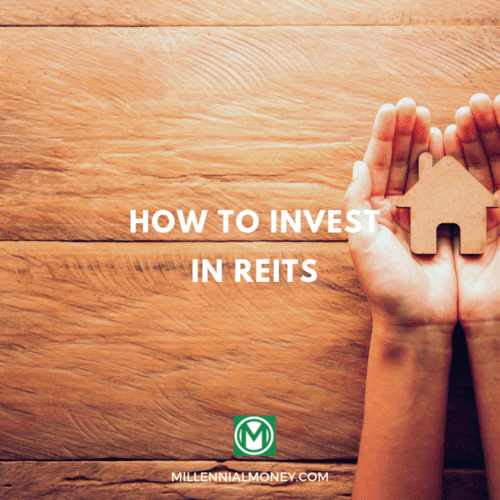When choosing between real estate vs. stocks, it is key for any investor to understand the pros and cons of each of these investments. Real estate is considered a tangible asset, while stocks are more liquid and can offer the opportunity for greater returns.
Below, we’ll explore in detail the advantages and disadvantages of real estate and stock market investing. I’ll offer my insights into what may align best with your individual financial goals so that you can make an informed decision about which will work best for you.
Real Estate vs. Stocks
Both seasoned and new investors can find themselves having to decide how to allocate their funds.
Before delving into the pros and cons of these two investment strategies, it’ll be important to assess your current financial situation, determine exactly how much liquid cash you have to invest, and what your investment goals are.
What Are Your Investing Goals?
Do you want to be an active, hands-on investor, or do you prefer a more passive, hands-off approach? Also, ask yourself how much of a return you want to see, how long you plan to hold your investments, and how much risk you’re willing to take.
Answering these questions will help you identify your financial goals, time horizon, and risk tolerance—each of which will help you determine whether investing in real estate or stocks is the right choice for you.
Real Estate Investing
Investing in real estate is a way to generate long-term income outside of the volatility of the stock market. It can provide a steady income stream, diversify your portfolio, and offer tax benefits, depending on the type of real estate investment you choose.
Depending on your risk tolerance and if you prefer to be a hands-on or hands-off investor, there are a few different routes you can take as a real estate investor:
Fix and Flip Properties
Purchasing a property, fixing it up, and flipping it for profit can be highly lucrative; however, it requires a good deal of hands-on work and upfront funding on your part. It is an ideal option for someone who already knows the real estate market. Your success with this method relies heavily on the location you’ve chosen, accurately estimating the cost of repairs and renovations, and the resulting property value.
Learn more:
Homeownership
Your home is more than just where you lay your head—it’s also an investment. The value of your property will slowly and steadily appreciate over time. As homeowners consistently pay down their mortgages, they are that much closer to having 100% equity in their homes.
Purchasing Rental Properties
Like fixing and flipping, this option is extremely hands-on for the investor. Once you purchase a rental property, congratulations—you are now the property manager! While you will have a steady stream of rental income, it is accompanied by the responsibilities and expenses of being a landlord—property maintenance, insurance, repairs, and managing tenants.
Real Estate Investment Trusts (REITs)
REITs are a hand-off option for passive income if you don’t want to deal with owning or managing properties. REITs are companies that own, operate, or finance income-generating properties, like apartment complexes, hotels, office buildings, and commercial locations. One trust can hold up to hundreds of properties.
REITs are required by law to pay out 90% of their taxable income to shareholders as dividends, so this is a good option for a steady income and long-term capital appreciation.
Real Estate Crowdfunding Platforms
Crowdfunding is part of the peer-to-peer (P2P) investment model that has been gaining popularity in recent years. With real estate crowdfunding platforms like Fundrise and Roofstock, you can pool your money with other investors to finance large-scale commercial or residential real estate projects. You could access properties that may have been out of your reach if you were investing solo.
Investing in real estate can be a great way to diversify your portfolio, but keep in mind that whichever approach you choose, these are long-term investments.
I’ve been investing with Fundrise since 2017. Disclosure: when you sign up with my link, I earn a commission. All opinions are my own.
Pros & Cons of Real Estate Investing
While real estate can be a great opportunity for potentially high returns, it also demands hands-on work to see a return on your investment.
Here’s a breakdown of the pros and cons of real estate investing:
Pros:
- Cash flow: Your real estate investment can provide recurring, predictable cash flow, whether it’s passive income from rental properties or active income as a lump sum from flipping properties.
- Degree of risk: Investing in real estate can help spread risk across your portfolio and avoid the volatility of stock investments.
- Net worth increase: Your net worth is the total value of what you own, minus what you owe. If you own property, your net worth increases as you continue to pay off a mortgage.
- Return on investment (ROI): Because the stock market can fluctuate on a dime, there is rarely a guarantee that you will buy low and sell high with stocks. Contrarily, there are more opportunities to find a deal and make a profit in the housing market. Every property is unique and has greater potential to buy low and sell high, whether you’re flipping a house or purchasing a home in a high-demand location.
- Security: Unlike stocks, real estate is a tangible asset, as you have physical property as proof of your investment. Even if your property was destroyed, insurance should cover the damages. Additionally, real estate is less volatile and less affected by inflation than the stock market.
- Tax advantages: If you’re an active property owner, you can deduct expenses from your taxable income—meaning you’ll owe less come tax time. Common tax deductions include depreciation, property taxes, mortgage interest, and any repairs or renovations you make. And if you hold onto the property for over a year, you can even get a break on the long-term capital gains tax, which is usually lower than regular income tax.
Cons:
- Effort: Unlike investing in stocks or mutual funds, owning properties involves significant hands-on work and effort, especially when it comes to maintaining rental properties. Expect to put in some elbow grease, especially when managing tenants, requests, and repairs.
- High transaction costs: There will be several expenses you’ll need to be prepared for, including the real estate agent’s commission, closing costs, title fees, attorney fees, transfer taxes, inspections, appraisals, and repairs. It can be a pretty pricey investment to start, so you’ll want to have enough funds to cover these costs before buying a property.
- Illiquid: Real estate investing is considered illiquid because it can be time-consuming to sell or convert a property into cash. Unlike stocks that can be quickly bought and sold on the stock market, selling property often involves a lengthy process that market conditions, location, and the property condition can further impact.
- Time commitment: You’ll need patience as a real estate investor, whether you’re waiting for the property to appreciate, tenants, to sign a lease, or a homebuyer to buy your flip. Your return on investment will likely not be immediate—it could even take years. So, real estate investing is only for those willing to be in it for the long haul.
Investing in Stocks
When you purchase stock, you are purchasing a small piece (or share) of ownership of that company. The more shares you have, the more ownership you have.
Ideally, you want to purchase shares at a lower price, so you can earn money as the company’s stock price grows. However, growth is not always guaranteed. Stock prices can rise and fall at any time, for any number of reasons—company performance, economic conditions, news (positive or negative), business mergers, and investor sentiment (or how investors generally feel about a particular security or market).
But while stocks can be more volatile than real estate, they can also offer the potential for higher returns.
It’s relatively straightforward to set up an investment account. Select a brokerage firm like Vanguard or Fidelity, create an account through the website or mobile app, and fund it. Once you’re up and running, you’ll have immediate access to a range of stock investment options.
Like real estate, you can invest in stocks in a few different ways. Whichever you choose, remember the importance of diversification by investing in more than one company. When you put all your eggs in one basket, you drastically increase your investment risk.
Individual Stocks
Investing in an individual stock means purchasing shares from one single company. For a diversified portfolio, you can purchase shares from a few different companies; however, make sure to do your research on each one.
Index Funds
If you’re nervous about the risks of choosing individual stocks, an index fund might be an easier option. An index fund is made up of a basket (or collection) of stocks that track a specific index, such as the S&P 500 index. It adds diversification to your stock portfolio, as an index can track numerous companies (some even hundreds)—so the pressure is off of you having to choose a single winning stock.
Index funds are passively managed, meaning there isn’t a fund manager actively choosing your investments. The fund follows an index and attempts to replicate its performance. Because there is no fund manager, index funds are typically a low-cost option, ideal for the long term.
Mutual Funds
Mutual funds are an investment vehicle that pools your money with funds from other investors to purchase a variety of securities. With mutual funds, there is the potential for more growth than with index funds, as a fund manager actively manages them. Their goal is to make strategic moves to get the fund to perform better than a specific index.
However, actively managed funds come with high fees, and unfortunately, there is no guarantee that your fund manager will be able to outperform the market.
ETFs
Like mutual and index funds, when you invest in an ETF (exchange-traded fund), you are investing in multiple companies or asset classes. This is another option for diversification, lower expense ratios, and less work, as ETFs are usually passively managed.
ETFs are traded just like stocks and can be bought and sold throughout the trading day (unlike index funds which can only be bought at the close of the trading day). This offers investors more flexibility and liquidity than a real estate investment.
Retirement Account
Finally, you can invest in the stock market through a retirement account, by way of a traditional IRA, Roth IRA, or through an employer-sponsored 401(k). With these plans, you can invest in individual stocks, mutual funds, ETFs, or index funds.
Retirement investing will help you build wealth and secure your finances for the future. As these accounts hold your securities long-term, they have the potential for greater returns over time despite market volatility.
Learn more:
INVESTMENT AND INSURANCE PRODUCTS ARE: NOT A DEPOSIT • NOT FDIC INSURED • NO BANK GUARANTEE • MAY LOSE VALUEPros & Cons of Investing in Stocks
There are several investment opportunities when it comes to stocks, along with the great potential for growth and diversification. However, a volatile market can lead to a risky portfolio that may not have you coming out on top.
Let’s examine the advantages and disadvantages of investing in stocks:
Pros:
- Dividends: Certain stocks offer their shareholders cash payouts (usually quarterly), known as dividends. Dividend stocks offer a steady income stream and are a good sign of a company’s financial health and stability. Additionally, you can opt to reinvest dividends to get more shares and compound your interest.
- Diversification: With stocks, you can easily diversify your portfolio, whether you choose to invest in mutual funds, ETFs, index funds, or buy shares of several individual stocks. With real estate, to diversify with property, you would need a substantial amount of money up front to purchase various properties in multiple locations to spread out your risk.
- Higher returns: If a company is performing well and consistently growing, its stock will do the same. For example, a share of Apple stock cost an average of $2.50 in 2006—today, it’s averaging $150. So, it’s definitely possible to buy a large number of shares in a company when they are priced low and potentially reap the benefits of its significant growth.
- Liquidity: Unlike real estate, stocks offer the flexibility to buy and sell shares at any time, especially with a brokerage app, meaning you can easily liquidate your investment and access your money quickly, if necessary.
- Limit your losses: When you purchase stock, you also have the option to make a “stop-loss” order, meaning if the company’s stock price dips below a certain amount, it will automatically trigger a sale of your shares. This option reduces your risk of losing the money from your initial investment.
- Lower fees: While specific fees are associated with stock investments, there are significantly lower upfront fees. Additionally, many brokerages offer commission-free trading or low-cost options.
Cons:
- Capital gains tax: If you make a profit from selling shares, you’ll need to pay capital gains taxes on those earnings.
- Emotional decisions: It can be challenging not to get emotional over investment decisions. If you see a stock you own taking a small dip, you might be tempted to sell it. Of course, it’s leveled out the next day or even gone up. If you make an emotional decision to sell, you could miss out on potential gains.
- Higher risk: Stocks can skyrocket in value but can also plummet out of the blue, which can result in a sizeable money loss. To minimize this risk, it’s crucial for you to research and invest in trustworthy companies.
- Lack of control: While you can, of course, control the companies you choose to invest in, you have zero control over their day-to-day operations or the decisions that can cause its success or demise.
- Volatility: It’s no secret the stock market is volatile—stocks can rise and fall (sometimes drastically) at a moment’s notice.
Frequently Asked Questions
Can I invest in real estate without a long-time commitment?
There are a couple of ways you can invest in real estate without a long-term commitment, primarily with real estate investment trusts (REITs). With REITs, you can invest in real estate without having to manage any properties. However, keep in mind that short-term real estate investments may not result in a different level of growth than long-term investments.
Which has a better performance track record—stocks or real estate?
There is no straightforward answer when comparing the track record of stocks versus real estate. They both have advantages and drawbacks with differing past performances. Generally speaking, stocks have had higher returns over time, while real estate has been a reliable source of income when it comes to rental properties. However, you can make the most out of investing in either asset class with the right approach.
How much money do I need to invest in real estate?
How much you need to invest in real estate depends on which type of real estate you are investing in and what your goals are. If you want to be an active investor, you’ll need upfront capital to cover the costs of purchasing a property, including a down payment, closing costs, and any other associated fees. The exact amount you’ll need will vary depending on your specific property and financial situation.
Is it better to save money or invest in real estate?
It depends. Keeping your money in a savings account means it’s safe and easily accessible—but don’t expect it to grow there. Real estate is considered one of the safest investments if you want to see returns on your money. However, keep in mind that your investment will be relatively illiquid. Ultimately, it’s up to you to decide which is best depending on your financial goals and risk tolerance.
Should I Invest in Stocks or Real Estate?
Ultimately, deciding whether to invest in real estate or stocks depends on what works best for you, based on your financial goals, risk tolerance level, and time horizon for your investments.
Real estate investments require more time and effort to manage, but they can provide more stability and security than investing in stocks.
On the other hand, stocks offer the potential for higher returns with less effort but can be subject to market volatility.
Evaluating your current financial situation and weighing out the pros and cons of both options is the best way to decide which investment is the best for you.
It’s always a good idea to consult with a financial advisor to help you get clear on your financial goals and to provide personalized guidance on how you can best invest your money.





No comments yet. Add your own